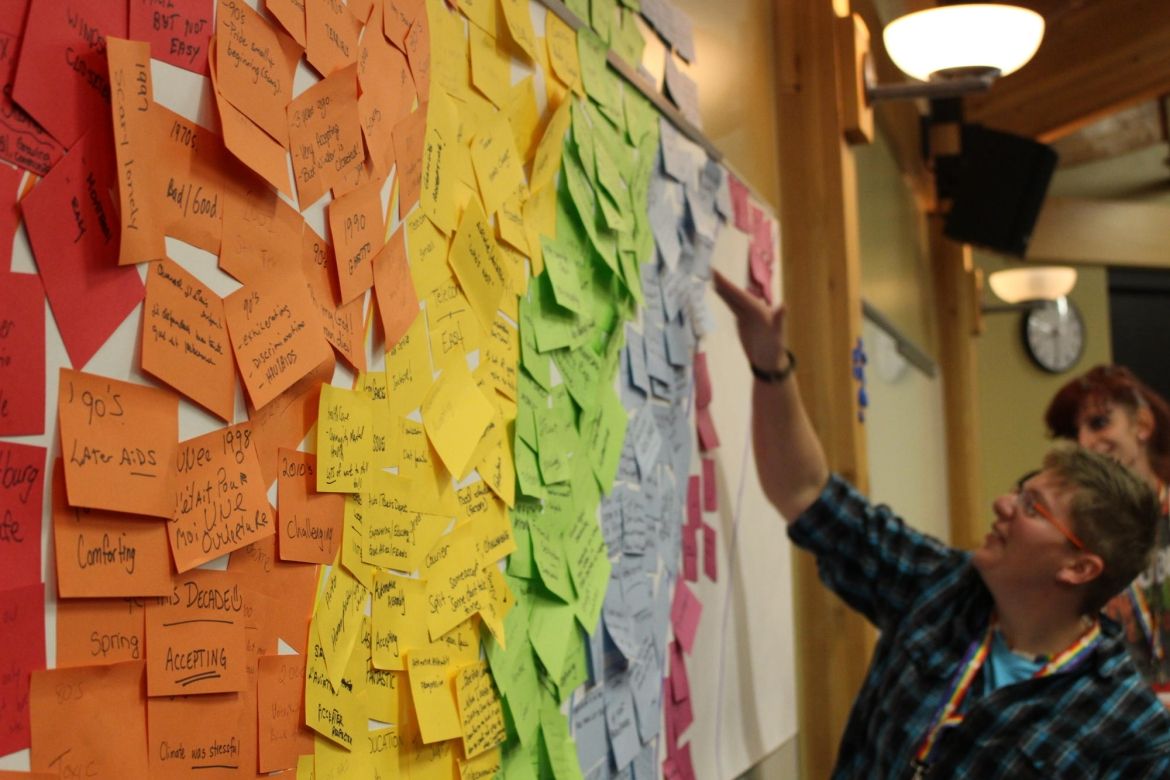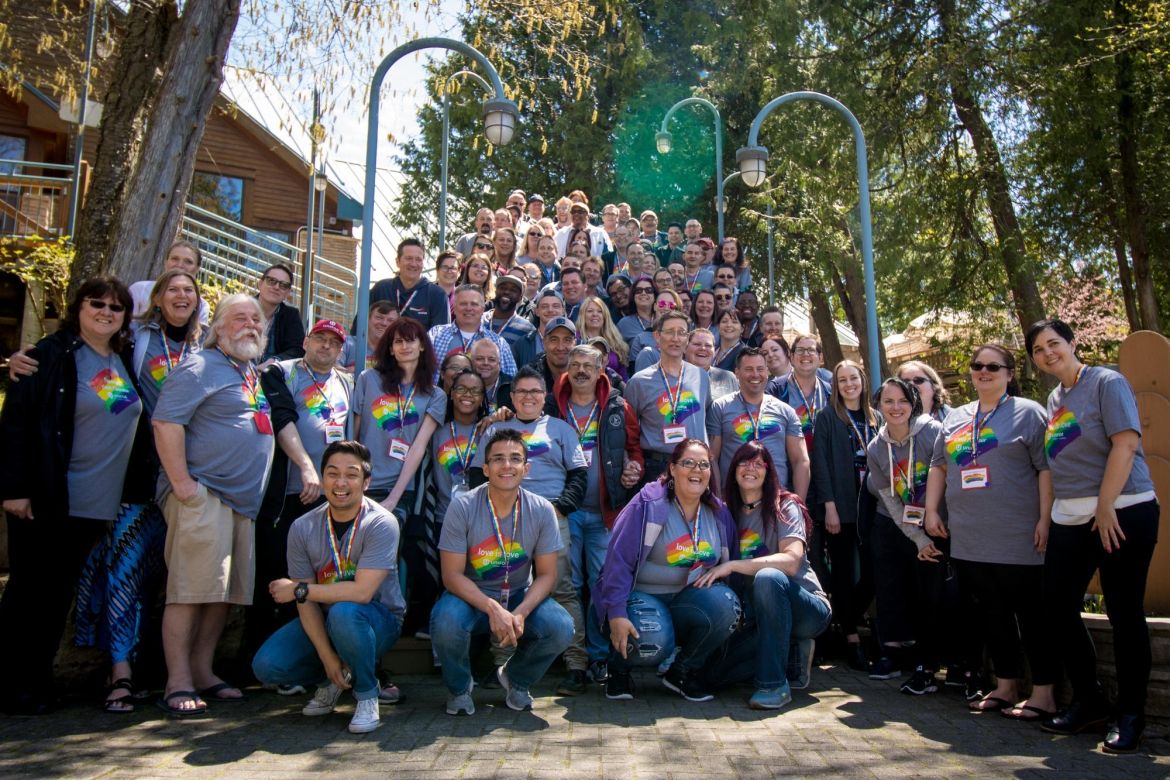
Share
From May 12-14, more than 100 delegates learned from empowering panels and expert speakers who shared a lifetime of experience as social activists at Unifor’s national Pride Conference.
Opening panels tackled the new reality of social justice activism in the age of Trump, and current 2SLGBTQIA+ issues in Canada and around the world. Unifor members participated in more than 15 local pride celebrations last summer, and hope to be present at even more this year. Gary Kinsman, a long-time activist and academic, reminded workers to bring their issues and perspectives as 2SLGBTQIA+ workers to the wider community and push to include politics and protest in pride celebrations. The first pride parade was a protest led by transgender women of colour. Their legacy of acting in solidarity to push for justice should be continued.
Pride is crucial for many young workers and those just discovering their gender and sexual identity. Workers still face homophobia and transphobia at work and in the wider community. Union involvement in local 2SLGBTQIA+ groups and events are important to represent the needs of those workers.
Participants heard from Akio Maroon, who sits on the executive board of Pride Toronto. Pride festivals, for Akoi, should be more than a PR strategy. “We need to lean in to challenge and change systems of oppression,” Akoi added to the conversation around union involvement in pride as activists, not just to wave a flag.
Delegates also participated in a workshop covering the first steps towards making workplaces safer and more supportive for transgender coworkers, from bargaining protection under gender identity and expression into CAs to taking political action to defend trans rights on the provincial and federal levels. Adrianne Smith explained a simple thing that all people can do to help combat ideas around gender, by simply asking people what pronouns they use when you are asking their name (her, him, they, or something else).
Unifor national president Jerry Dias summed up the call-to-action of the conference in his remarks to delegates, saying that, “We need to start with the premise that we have a lot to learn and a lot more to do. But the arguments and fights we take on are worth it to move progressive politics forward.” Unifor has bargained for same-sex spousal benefits and against discrimination based on gender and sexuality since Dias’ first time serving on bargaining committees in the 1970s, but this change needs to be included in work with government and within workers’ communities.
All members are encouraged to go out and be involved in local Pride events and festivities, to bring Unifor’s dedication to social justice to cities and towns all over this country.




